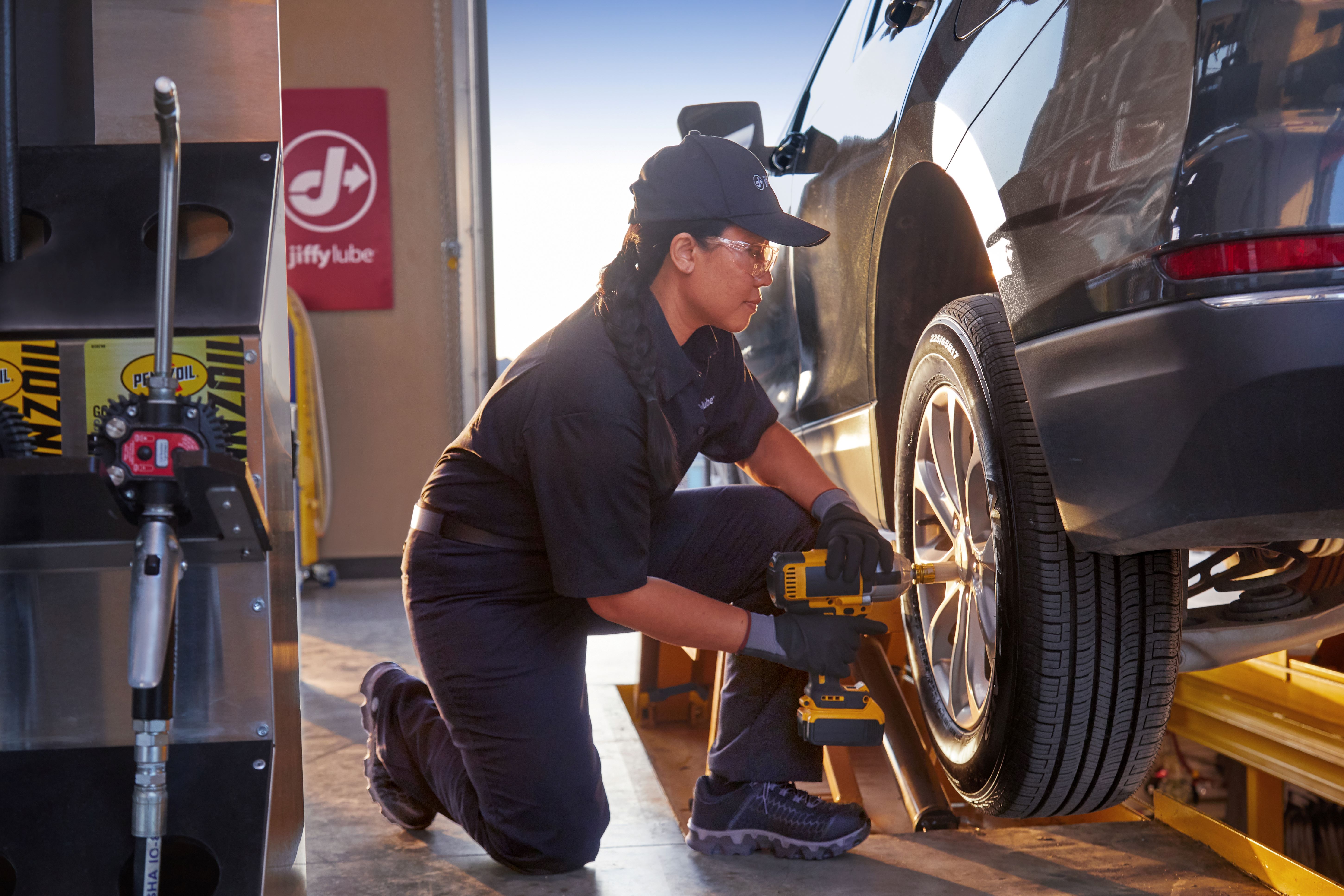Discover Top-Quality Tires Morris IL: Choose the Best for Your Car
Discover Top-Quality Tires Morris IL: Choose the Best for Your Car
Blog Article
Tire Solution: Understanding Tire Pressure Surveillance Equipments
Recognizing Tire Pressure Tracking Equipments (TPMS) is a critical aspect of preserving optimal automobile performance and safety and security on the road. With developments in auto innovation, TPMS has actually ended up being a conventional attribute in modern-day automobiles, supplying real-time information on tire stress levels.

Value of TPMS
The relevance of Tire Stress Surveillance Equipments (TPMS) hinges on their capability to enhance car safety and security and performance with real-time monitoring of tire pressure degrees. Maintaining the right tire pressure is crucial for making certain optimal handling, stopping, and general security of a car. TPMS provides drivers with prompt feedback on any type of underinflated or overinflated tires, allowing for timely changes to be made.
Parts of TPMS
Sensing units are commonly situated in the tire shutoff stem or attached to the wheel assembly, where they determine tire pressure and transfer information to the control module. Some advanced TPMS designs likewise present the real tire pressure readings for each tire, supplying drivers with real-time info to make sure optimal tire efficiency and safety. By checking tire stress continually, TPMS helps avoid accidents, reduces tire wear, and enhances gas efficiency, making it a crucial part for car safety and security and efficiency. mopar tire service specials.
Sorts Of TPMS

On the other hand, indirect TPMS counts on the lorry's wheel speed sensors to keep an eye on tire pressure. This system discovers underinflation by comparing the rotational rates of the wheels. Indirect TPMS is much less expensive than straight TPMS, as it utilizes existing sensing units within the vehicle.
While direct TPMS supplies much more precise analyses, indirect TPMS is less complex in style and usually calls for much less upkeep. Both systems have their benefits and limitations, and the selection between them frequently depends on factors such as cost, lorry make, and individual choice. Comprehending the distinctions between these two types of TPMS can assist vehicle owners make notified choices relating to tire maintenance and safety.
TPMS Upkeep Tips
Reliable maintenance of TPMS is essential for making certain ideal performance and safety of your automobile. Frequently checking the TPMS sensing units for any kind of damage or corrosion is crucial. Ensure that the sensors are tidy and totally free from particles that could disrupt their performance. Additionally, it continue reading this is advisable to inspect the sensor batteries regularly and change them as needed to guarantee exact analyses. Conduct routine look at the tire stress degrees and compare them with the TPMS analyses to ensure they are consistent. If there are any disparities, rectify the system complying with the producer's guidelines. Throughout tire turning or substitute, make certain that the TPMS parts are managed very carefully to avoid any potential damages. If the TPMS advising light illuminates on the dashboard, address the issue promptly by examining the tire pressures and the total system for any type of mistakes. By sticking to these maintenance tips, you can prolong the life expectancy of your TPMS and boost the security of your driving experience.
Advantages of Proper Tire Stress
Preserving appropriate tire pressure, as emphasized in TPMS Upkeep Tips, read review is crucial for reaping the many advantages linked with optimal tire stress degrees. In addition, correct tire stress makes sure even tire wear, expanding the lifespan of the tires and advertising more secure driving problems. In final thought, the advantages of proper tire pressure go beyond simply tire durability; they include boosted gas effectiveness, improved safety and security, better lorry efficiency, and overall driving convenience.
Final Thought
In final thought, recognizing tire stress surveillance systems (TPMS) is critical for preserving optimum tire stress and guaranteeing car security. By identifying the importance of TPMS, knowing with its elements, understanding the different kinds offered, adhering to proper maintenance ideas, and realizing the benefits of maintaining appropriate tire stress, chauffeurs can boost their driving experience and lengthen the life-span of their tires. Correct tire stress is vital to secure and reliable vehicle operation.

Report this page